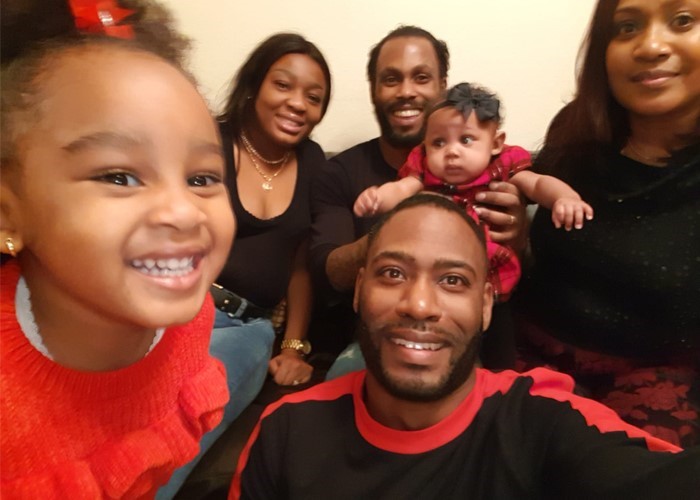Jacqueline struggled with achy joints, nausea and dizziness due to hormone therapy. She gives her tips on managing symptoms.
Jacqueline struggled with achy joints, nausea and dizziness due to hormone therapy. She explains how it’s affected her work and social life and gives her tips on managing symptoms.

I didn’t need chemo or radio
After I was diagnosed I was booked in for surgery straightaway. Luckily the cancer hadn’t spread to my lymph nodes, so I didn’t need any further treatment in hospital.
But since I finished active treatment last year I’ve been on letrozole, and found the side effects really hard to deal with. My ankles, my knees, my arms and my hands are really painful.
Getting back to normal is going to take longer than I thought
Work has been my focus forever, but I'm nervous about going back. I changed careers from being a hair and beauty teacher to a job in training and development, but I was diagnosed three months in.
I feel anxious about returning as my confidence has been affected. I returned to work in October but it was way too soon, and after five days I felt ill. I went too fast, which is what I'm used to doing – ‘Let's get back to normal.’ But it’s harder than I thought.
I'm not as social as I used to be
I was very social before I was diagnosed and liked to go out with friends and family. Not being able to do those things because of dizziness, nausea and headaches is awful, as they’re what keep me mentally well. They have been taken away from me, which is very frustrating.
My son wanted to take me for dinner for my birthday, but I couldn’t cope. I spent the day in bed. The most exciting part was my new pyjamas and a lovely bath! I forced myself to go for dinner a few days later and pretended I enjoyed it, but really I wanted to get back to bed.
Now the nausea and headaches are wearing off, I’ve given myself the task of meeting a friend once a week and going to the leisure centre. It's helping me build up that side of my life again.
Jacqueline’s tips for managing side effects
1.Take a hot bath
When my joints are aching, I have a lovely hot bath with Epsom salts and lavender oil.
2.Ask for a referral to a leisure centre
My GP gave me one so now I’ve started pilates and aqua fit, and I get three personal training sessions to help me ease back into exercise. There’s also a steam room that is great for my joint pain, and helps me crash out and sleep when I get home.
3.Put yourself first
I would say put your needs and feelings first. Be selfish – no one else’s feelings and needs should go above yours. If you have children, or a partner, obviously it affects them, but your wellbeing comes first.
4.Take life one day at a time
Try not to rush. If the most you can do is brush your teeth, that’s fine. Or if you can’t, that’s fine too. I won't smell too bad if I miss a shower for one day!
5.Look Good Feel Better
I went on one of their workshops recently and met a few women who were experiencing the same side effects as me from letrozole. It was great to chat to people who know how I feel.
6.Accept support from friends and family
I'm not good at asking for help. I had a friend who stayed for a week when I had surgery, she said what do you need me to do? I normally say ‘nothing!’. But I said, ‘Could you change my bed sheets?’. It's a huge thing for me to ask someone to do, but it makes such a difference. You can’t do it all.
Having said that, it’s OK to have time for yourself too.
7.Remember you are unique
Your mood and feelings change from day to day. That's OK as well. You can’t expect to get up and start running a marathon.There are days you feel good, and others you feel awful. Everyone’s journey is different and unique to themselves. It's not a competition or a comparison.
Everyone is different, so try not to measure yourself against someone else’s recovery. If it’s time you need, allow the time.
Find more tips on adapting to life after hospital-based treatment in Becca, our free app.